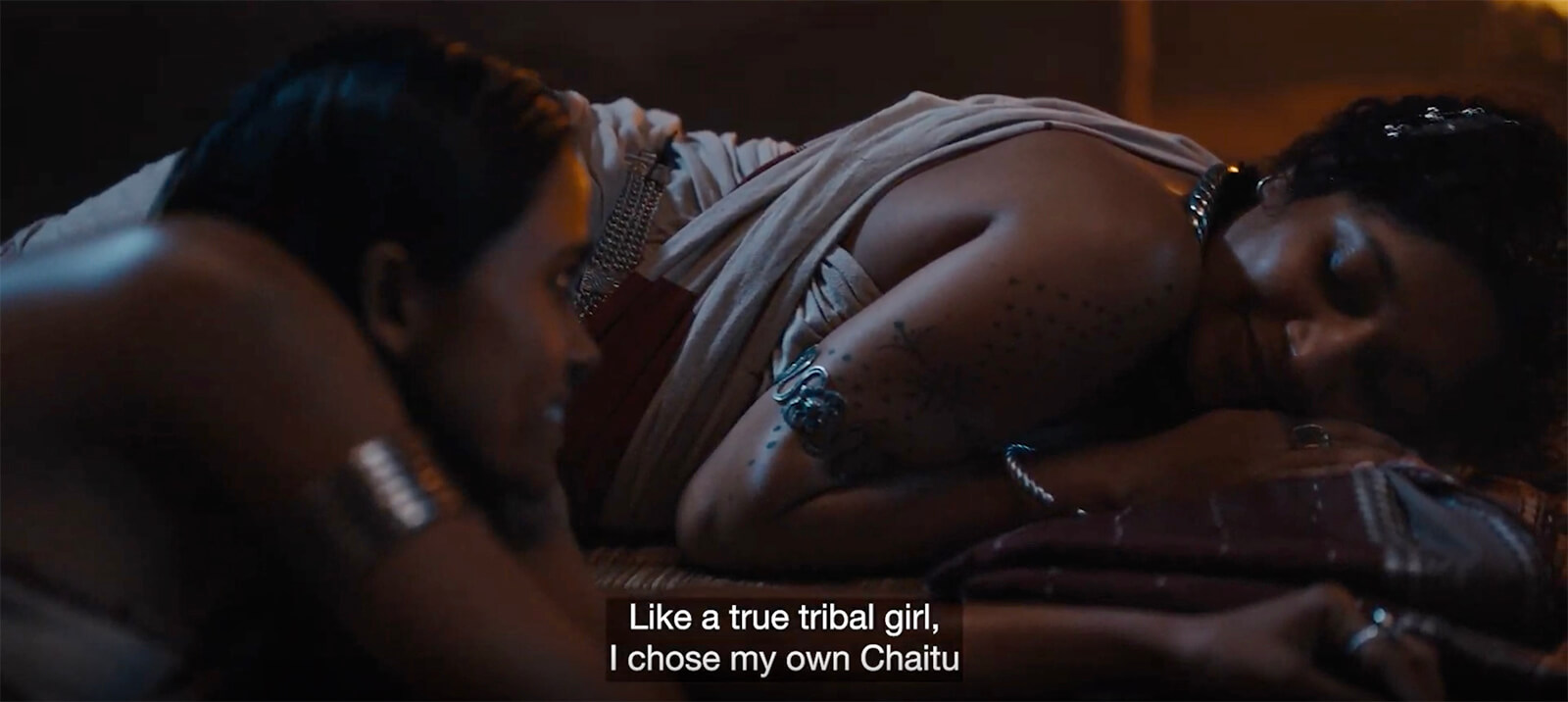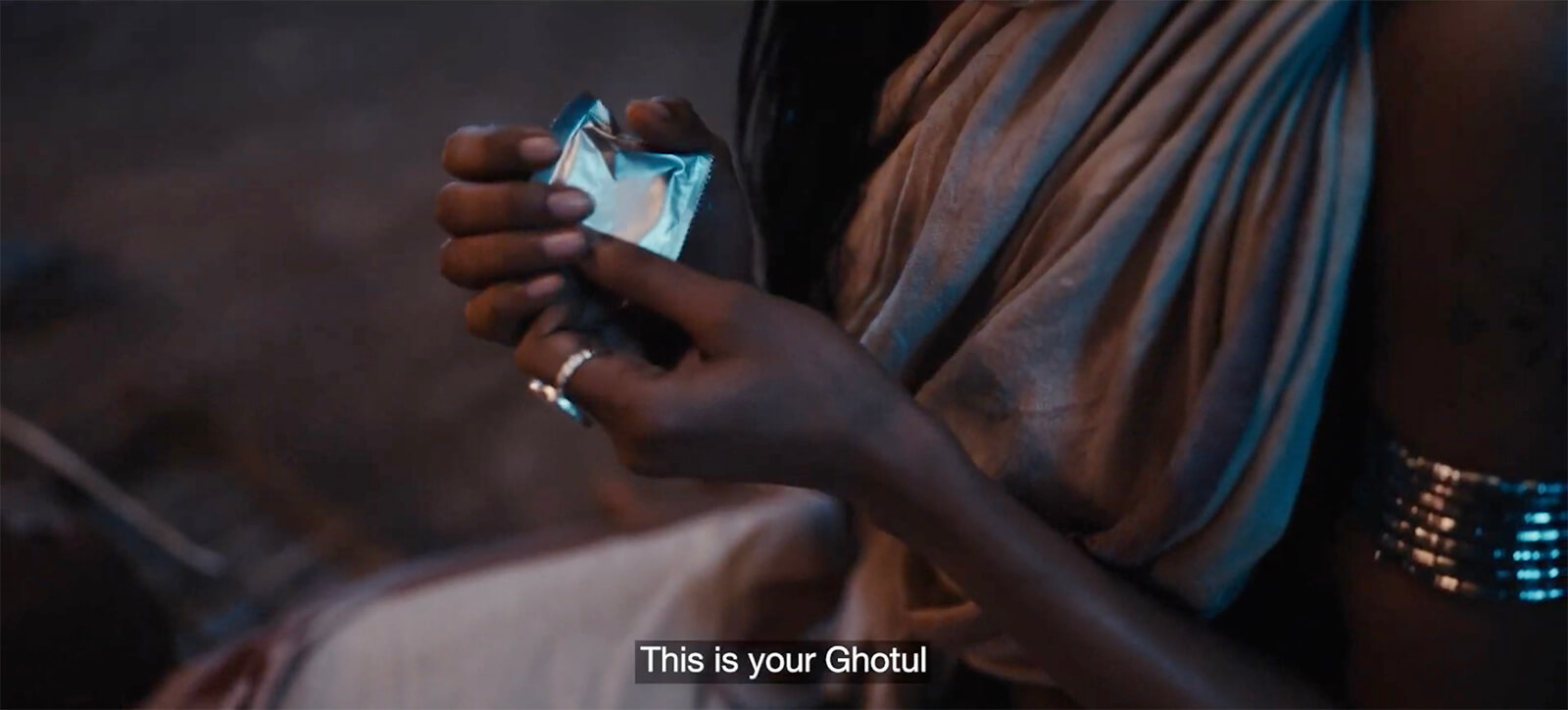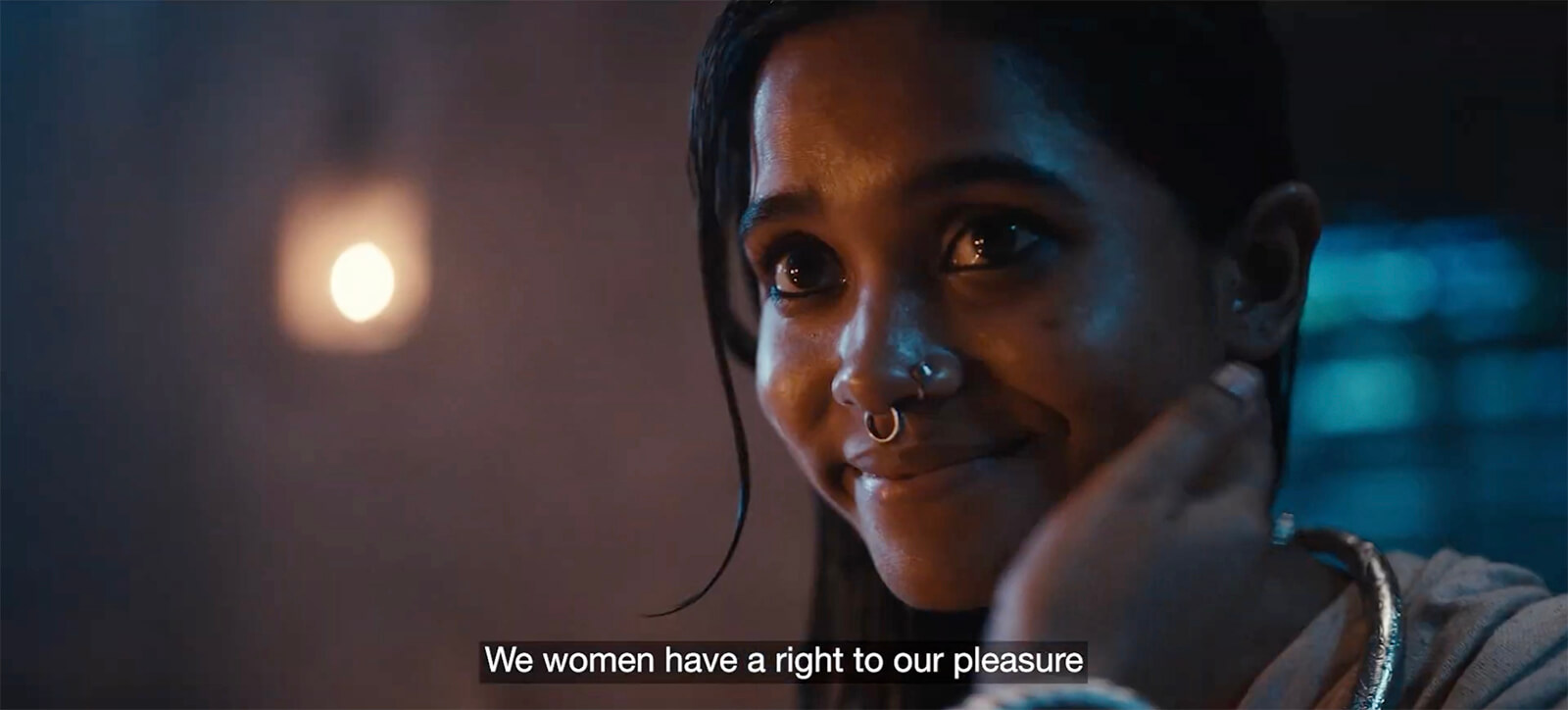ADFF:STIR's London Curtain Raiser sets the stage for 2026 with dialogue and community
by Jincy IypeOct 01, 2025
•make your fridays matter with a well-read weekend
by Srishti OjhaPublished on : Oct 10, 2025
To mark the International Day of the Girl Child on October 11, UNAIDS India will release the short film Ghotul globally. The film is directed by Shashanka ‘Bob’ Chaturvedi from Good Morning Films and is the brainchild of advertising executive Swati Bhattacharya, global head at Godrej Creative Lab. Ghotul draws on the practices that central Indian tribes formerly used to introduce young adults to the intricacies of relationships, marriage and family. It is picturised in particular on two women of the Gond community, documenting their approach to conversations on sexuality, contraception and bodily agency. Ghotuls were co-educational dormitories where young adolescents were encouraged to socialise, explore their sexuality and pick their future partners.
A film like Ghotul invites us to explore traditions that embraced autonomy, consent and sexual agency long before modern discourse caught up. – Apoorva Bakshi, Emmy Award-winning producer

Ghotul’s cinematography is by the award-winning director of photography, Tassaduq Hussain, known for his work in Omkara (2006) and Kaminey (2009). It is based on a story written by gender and inclusion practitioner and author Shruti Johri, which in turn is an indigenised screenplay version of the book, The Muria and their Ghotul, written by British-Indian anthropologist Verrier Elwin in 1947.
Ghotul reminds us of the need to bring those honest, caring conversations back into our homes. – Swati Bhattacharya, Global Head, Godrej Creative Lab
In the 12-minute film, the mother, played by Indira Tiwari (known for her performances in films like Serious Men (2020) and Gangubai Kathiawadi (2022), retells the story of how she chose her husband, Chaitu, to her daughter, played by model and artist Puja Kulay. She describes the Ghotul as a safe space for exploration, where nothing was sinful and where great value was placed on consent. She recounts her experiences with other men and how the Ghotul allowed her the space to spot early signs of incompatibility and even aggressive and violent behaviour in future partners. Apoorva Bakshi, an Emmy Award-winning producer known for her Netflix series Delhi Crime (2019), has supported the film, saying, “Cinema has the power to unearth and reframe indigenous wisdom through a feminist lens. A film like Ghotul invites us to explore traditions that embraced autonomy, consent and sexual agency long before modern discourse caught up.”
Films like Ghotul open up the space for an honest and much-needed conversation about reproductive autonomy. – Barkha Dutt, Indian television journalist and author
Bhattacharya said to STIR about the social issues informing the film, “When taboo replaces dialogue, adolescents look for answers through unregulated and unsafe means such as the internet and elopement, especially after dropping out of school. It appears to them as agency but without self-awareness or bodily understanding, many soon find themselves as victims of HIV or STIs, or become teenage parents. This prematurely reduces their chances for education, productive work and exposes them to intimate partner violence, trafficking and abuse. In tribal wisdom, elders spoke freely with adolescents about love, desire and growing bodies, not to shame them, but to guide them. Ghotul reminds us of the need to bring those honest, caring conversations back into our homes.”
By knowing the facts and educating young people about their sexual health, we can help them feel safe and stay safe. – Winnie Byanyima, Executive Director, UNAIDS
These realities, along with the increased risk of HIV and other STDs, are reflected grimly in India’s public health statistics. Adolescents are left to navigate their sexuality with little to no knowledge of their anatomy, the concept of consent and their sexual and reproductive rights. The shame associated with sexuality can breed toxic forms of masculinity in young men and stigmas around virginity and purity in young women. Intergenerational conversations can demonstrate the importance of pleasure, desire, care and autonomy in sex and sexual relationships. “Through my work with UNICEF, UNGEI, Breakthrough, Anudip and Azad Foundation, I’ve seen how this trajectory changes when tribal girls and their parents are given safe platforms for dialogue…Girls begin to see themselves not just as future wives or mothers, but as leaders, workers and equal partners in society. Ghotul embodies this possibility,” Johri said about the filmmaking process.
Ghotul reminds us that Indigenous traditions once placed equality at the centre of adolescence. – Guneet Monga, Academy Award-winning producer

With the disappearance of Ghotuls in villages and tribal communities across India, the film presents condoms as a solution, with easy access to them allowing young people to approach sex as a celebration of desire, love and intimacy without the threat of disease, violence or unplanned pregnancy. “Only one in 10 Indian men uses a condom as a method of contraception—that’s less than 10 per cent. The burden of birth control continues to fall on women. Nearly 38 per cent of women depend on female sterilisation compared to 0.3 per cent of men, even though male sterilisation is easier and safer. Films like Ghotul open up the space for an honest and much-needed conversation about reproductive autonomy,” said Barkha Dutt, Indian television journalist and author.
Speaking about the film, UNAIDS Executive Director Winnie Byanyima said: “By knowing the facts and educating young people about their sexual health, we can help them feel safe and stay safe.”Mahesh Mahalingam, UNAIDS Chief of Staff, said, “UNAIDS is proud to partner with Good Morning Films on such a beautiful feature. We believe art can raise awareness about sex and HIV prevention…We are hoping that this film, highlighting conversations between parents and young people in safe and informed settings, will lead to protecting them from harm and ill health.”
Indian film producer Guneet Monga, who produced the Academy Award-winning documentary short film, The Elephant Whisperers (2022), said about Ghotul, “Few films dare to enter the fragile space of love, desire and agency with such dignity. Ghotul reminds us that Indigenous traditions once placed equality at the centre of adolescence. It gives voice to girls, while also celebrating softer masculinities in boys. This is storytelling with courage, compassion and cultural depth.”

Voice and agency are at the centre of Ghotul’s message. On the International Day of the Girl Child 2025, Ghotul employs cinema to imagine a society where silence, shame and taboos are replaced by conversation, representation and care. It envisions an India and a world where everyone can exercise their right to sexual agency with confidence, community and autonomy.
by Asian Paints Oct 08, 2025
Forty Kolkata taxis became travelling archives as Asian Paints celebrates four decades of Sharad Shamman through colour, craft and cultural memory.
by Srishti Ojha Oct 08, 2025
The 11th edition of the international art fair celebrates the multiplicity and richness of the Asian art landscape.
by Mrinmayee Bhoot Oct 06, 2025
An exhibition at the Museum of Contemporary Art delves into the clandestine spaces for queer expression around the city of Chicago, revealing the joyful and disruptive nature of occupation.
by Ranjana Dave Oct 03, 2025
Bridging a museum collection and contemporary works, curators Sam Bardaouil and Till Fellrath treat ‘yearning’ as a continuum in their plans for the 2025 Taipei Biennial.
 surprise me!
surprise me!
make your fridays matter
SUBSCRIBEEnter your details to sign in
Don’t have an account?
Sign upOr you can sign in with
a single account for all
STIR platforms
All your bookmarks will be available across all your devices.
Stay STIRred
Already have an account?
Sign inOr you can sign up with
Tap on things that interests you.
Select the Conversation Category you would like to watch
Please enter your details and click submit.
Enter the 6-digit code sent at
Verification link sent to check your inbox or spam folder to complete sign up process



by Srishti Ojha | Published on : Oct 10, 2025
What do you think?